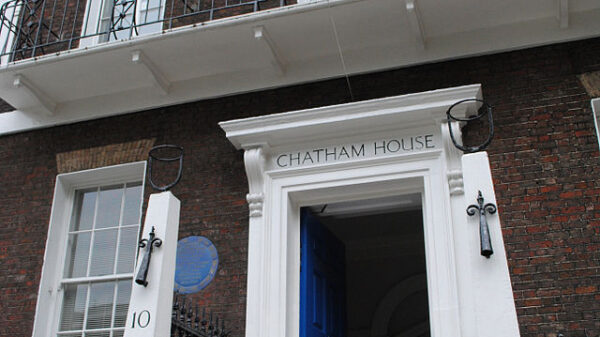Staff writer Kayla Rahaman discusses the implications of the upcoming Venezuelan referendum over the disputed Essequibo territory.
On 3 December, Venezuelan voters will respond to a referendum asking whether to assert territorial claims over the Essequibo, an oil and mineral-rich region which makes up two-thirds of neighbouring country Guyana.
The non-binding referendum will consist of five questions (detailed below) challenging the legally-recognised boundary—including a plan to establish a Venezuelan state in the territory which subsequently would grant citizenship to current and future inhabitants:
- Do you agree to reject by all means in accordance with the law the line fraudulently imposed by the Paris Arbitration Award of 1899 that seeks to deprive us of our Guayana Esequiba?
- Do you support the 1966 Geneva Agreement as the only valid legal instrument to reach a practical and satisfactory solution for Venezuela and Guyana regarding the controversy over the territory of the Guayana Esequiba?
- Do you agree with Venezuela’s historical position of not recognising the jurisdiction of the international Court of Justice to resolve the territorial controversy over Guayana Esequiba?
- Do you agree to oppose by all means in accordance with the law Guyana’s claim to unilaterally dispose of a sea pending delimitation illegally and in violation of international law?
- Do you agree with the creation of the Guayana Esequiba state and the development of an accelerated plan for the comprehensive care of the current and future population of that territory that includes, among others, the granting of citizenship and Venezuelan identity card in accordance with the Geneva Agreement and international law, consequently incorporating said state on the map of the Venezuelan territory?
The referendum was swiftly condemned by the Commonwealth, the Caribbean Community (CARICOM), and the Organization of American States (OAS) as illegal. Both the US and UK have expressed respect for the 1899 borders unless amended by a future decision of the International Court of Justice (ICJ).
Additionally, Caracas was strongly advised last week to withdraw its increased military presence on the Essequibo border.
But what is Venezuela’s case against Guyana’s control of the Essequibo, and why has the government renewed efforts to challenge the boundary now?
What is the Essequibo?
The Essequibo is a rainforest region of about 160,000 sq. kilometres lying west of the Essequibo River and home to just over 125,000 Guyanese citizens within six administrative regions. ExxonMobil’s discovery of significant offshore oil deposits in 2015 has prompted a massive influx of foreign investment in recent years, with crude oil exports accounting for the country’s newfound status as the world’s fastest-growing economy.
Why is this Territory Disputed?
The controversy dates back to the 1800s when the Dutch relinquished control of its South American colonies to the British Empire. Having lacked a clear western border, the boundary between then-British Guiana and Venezuela was claimed further west of what the British occupied at the time. The discovery of large gold deposits in the territory heightened Venezuela’s interest in contesting this delineation, whose officials successfully lobbied the US to pressure the UK into arbitrations to settle the dispute. To Venezuela’s dismay, the Arbitration Award of 1899 was decided in the UK’s favour; a joint UK-Venezuela commission was created to formally demarcate the border.
Arguing that the 1899 Arbitration was null and void, Venezuela again contested the boundary decades later. Mediation guidelines were agreed upon with the UK to achieve a diplomatic solution as part of the 1966 Geneva Agreement, the same year Guyana would gain independence. If no bilateral resolution arrived by 2017, it was agreed the matter would go to the ICJ.
Since then, Venezuela’s claims to the region simmered relatively low—until the 2015 oil discovery.
Between heightened rhetoric from Caracas and fruitless bilateral resolution efforts, by 2018 the border dispute was brought to the ICJ. Georgetown, capital of Guyana, quickly filed a case to affirm the validity of the 1899 border, which Venezuela unsuccessfully sought to prevent from proceeding. The ICJ approved Guyana’s request for a hearing back in April; Venezuela rejects its jurisdiction over the dispute.
International Reactions to the Referendum
Georgetown views Caracas’ increased demands over what is two-thirds of its territory as an existential threat to the country. Guyana’s government has called upon the ICJ to halt the upcoming vote, yet Venezuela’s Vice President has boldly insisted that “nothing will prevent the referendum scheduled for December 3rd from being held.”
Meanwhile, the reported presence of Venezuelan troops on the Essequibo border last week has triggered major security concerns from foreign nations, including Guyana’s major partner, the United States. Leaders from the US Army 1st Security Force Assistance Brigade (SFAB) promptly arrived this week to provide security assessments and military training support to the Guyana Defence Force (GDF).
Why the Controversy Now?
Considering economic prospects in the Essequibo, it may seem plausible to assume the Venezuelan government is reigniting its challenges in hopes of gaining exclusive exploration and extraction rights within the region. After all, the National Electoral Council’s (CNE) approval of the referendum follows from a decade of severe economic collapse.
However, Guyana’s crude oil discoveries are currently reported at 11 billion tonnes—quantities which have been a game-changer for the small nation but pale in comparison to the in excess of 300 billion confirmed tonnes upon which its western neighbour, the world’s largest oil reserve, sits. Venezuela’s internal crisis is attributed to falling oil prices, elite business and political corruption, mismanagement, and sanctions. ‘More oil’ will not change that.
This weekend’s referendum rather constitutes a broader effort by President Maduro and his allies to press the territorial issue ahead of next year’s presidential elections.
The government has agreed to allow the opposition party to select its candidate freely, a promise which proved shaky after subsequent denunciations of polling results. Last month, an oppositional primary voter turnout of 2.4 million in support of government critic Marina Corina Machado has foreshadowed the difficulties Maduro faces in his bid for another term.
What is clear is that Maduro will need to find something exciting to rally support around: the referendum puts annexation on trial-run as a platform to accomplish just that.
While claims to Guyana’s western portion have long held a place in Venezuelan national conscience, through a ‘pedagogical electoral campaign‘ involving Essequibo-oriented classroom activities, nationwide televised lessons, leaflets and reggaeton (among other media), Maduro hopes to instil greater cultural and historical identification with the land of its neighbour. Both the campaign and the language of the five referendum questions strongly encourage voters to frame the cause as a project to regain territory deprived of Venezuela by unscrupulous international actors.
Both domestically and internationally, President Maduro has developed the reputation of a right-wing dictator. His anti-democratic behaviour, role as one of the most important South American trade and military allies of Putin, and increased aggression over a neighbour of his own offers little objection to the title.
Perhaps Maduro realises he is conveniently situated in an era which gives continual credence to spreading far-right nationalist rhetoric and passionate territorial contestations. It is an all-too-familiar authoritarian trap: fiery assertions of a Zona en Reclamación are necessary tactics for a repressive incumbent government to divert citizen attention from grievances within by projecting promises across borders beyond.


















